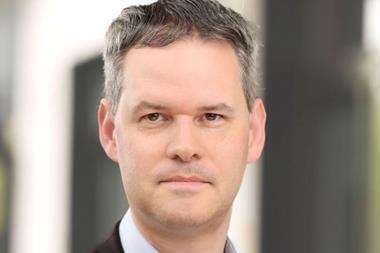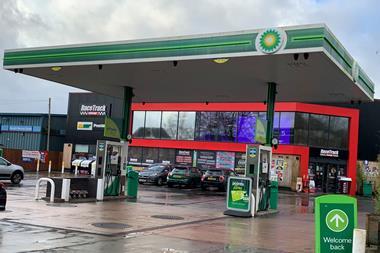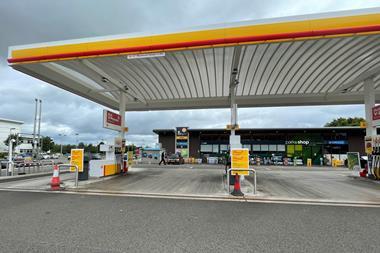Global pressure on BP has shown no sign of easing after the catastrophic oil leak in the Gulf of Mexico.
Angry protesters have been urging consumers in the US to boycott BP petrol stations, the oil company’s share price has taken a battering and chief executive Tony Hayward has come under fire from Barack Obama.
By the end of June, BP said it had already spent $2 billion battling the spill which was caused by the Deepwater Horizon explosion that killed 11 workers on April 20. But reported clean-up cost estimates vary from $20 billion to a mind-boggling $240 billion spread over five to 20 years. And then there’s the small matter of the $20 billion fund the company has agreed to set up with the US government to compensate victims for financial losses which BP recently said would now be implemented by the newly formed unit Gulf Coast Restoration Organization.
In one of the many statements recently issued by BP, Hayward stated: "The response to the incident in the Gulf of Mexico continues to be BP’s highest priority. Our commitment to the Gulf States is for the long-term."
Hayward criticised
But Hayward has been criticised from many quarters over his handling of the disaster and the consequences of this on his company’s image such as when he was spotted enjoying a day off sailing around the Isle of Wight. Two days after this gaffe he cancelled plans for his first appearance in London since the oil spill. He had been due to address the World National Oil Companies Congress on June 22 with his keynote speech on the global responsibility of oil companies.
Added to this have been the revelations from Tyrone Benton, the oil worker featured on the BBC’s Panorama programme who survived the Deepwater explosion. He claimed that the oil rig’s safety equipment was leaking several weeks before it exploded, and that both BP and Transocean, who owned the rig, were informed of the leak.
Over on this side of the Atlantic, BP fuel retailers seem to have escaped relatively unscathed from the disaster. For independents in the UK, it has been business as usual and retailers have not been subject to the anti-BP protests that have affected forecourts in the US. UK motorists have continued to buy fuel from BP sites with no reports of any negative behaviour as a result of the oil spill.
One UK retailer who said he had been slightly worried about possible boycotts was former Forecourt Trader of the Year winner Jonathan James. This was due to his site in Ely, Cambridgeshire, being in the unusual position of having lots of US customers there is an American airbase nearby.
James, operations director at retailer James Graven and Sons, said: "Locally, we have a very big American contingent as we are near RAF Lakenheath, so there are lots of American families in the area. That was a slightly bigger concern for me I didn’t know how they’d feel about what was happening at home in the US. But they haven’t stopped using us."
James was interviewed on the subject on his local radio station, Star 107.9 in Cambridge. He said: "I originally went on the radio to talk about fuel prices but the first question they asked me was about the oil spill. I’d never really linked that to our company selling petrol in Ely it’s got nothing to do with the tragedy in the US. I said that drivers need to remember that by boycotting a local petrol station they might hit BP ultimately, but they could also be hitting a family-run business."
Pensions
Looking towards the future, James said that he expected BP to come through the other side of the disaster, adding that Obama was acting "for his own political gain". James confirmed he had just signed another five-year deal with BP.
However, political concern has been building in the UK over the effect of Deepwater on British pension funds and investments. Tory MP Zac Goldsmith has placed himself at the forefront of a campaign that could see the oil leak change the way pensions operate. Goldsmith has filed an Early Day Motion relating to the subject, calling on the government to ensure pension funds report fully on their policy and practice regarding "environmental, social and governance risks".
The EDM, entitled Deepwater Horizon Oil Spill and UK Pensions Funds, states that "environmental risks are also financial risks" and that pension funds "should do more to integrate environmental risk assessment into their investment practices".
Lobby organisation FairPensions has added its support to the move. In a statement on its website, FairPensions stated: "From children to pensioners, 18 million Britons with investments in BP could be affected by the oil giant’s tumbling share price. With the US authorities pressing BP to scrap its quarterly dividend which accounts for £1 in £8 of dividend payments made to UK pension funds and analysts speculating that BP could become a takeover target if the share price continues to fall, concern over how to protect retirement savings is mounting."
Will all this mean that in the long term some companies, paranoid about their corporate responsibility, dispose of their investments in BP?
It has been reported that Marks & Spencer might be pulling its stake in BP from its M&S Ethical fund. Meanwhile, the FTSE4Good Index, which tracks shares of companies seen to be socially responsible, is said to be deciding in September whether or not to keep BP in its index.
Other companies have been swifter to act. The Dow Jones Sustainability Indexes removed BP on May 31, stating: "As a component of the DJSI World Index, BP was subject to index rules that allow for elimination from the DJSI following extraordinary events...The extent of the oil-spill catastrophe in the Gulf of Mexico and its foreseeable long-term effects on the environment and the local population in addition to the economic effects and the longterm damage to the reputation of the company were included in the analysis leading up to BP’s removal."
Industry experts seem to think BP will survive the disaster as a company. After all, it’s not the only oil company to have found its safety measures put under the spotlight. The Guardian recently reported how ExxonMobil admitted it would have been as powerless as BP to control the oil spill. "When these things happen we are not very well equipped to handle them," Rex Tillerson, Exxon chairman and chief executive told Congress, adding: "There is no response capability that will guarantee you will never have an impact. It does not exist."
The US committee listening to the comments from Tillerson stated that none of the five major oil companies the group also included Chevron, ConocoPhillips and Shell had "an effective response plan".
Motor Fuel Group director Sailesh Sejpal known as Sej said many BP retailers in the UK felt sympathy for BP due to the political pressure in the US and the huge clean-up costs. He added: "I am sure BP will get the situation resolved but I don’t know if they will ever really recover in the US."
Finally, RMI Petrol has warned that the oil spill is likely to have a damaging impact on fuel prices in the UK. RMIF Petrol chairman Brian Madderson said that "Obama’s war on BP", which was forcing the cessation of new deep-water drilling around the shores of North America, "unsettles this anxious commodity trade".
Madderson added: "Speculators are coming back in and buying oil. The message from the US is that they’re not doing any more drilling for oil at the moment. So there could well be a bit of a shortage.
"That’s the BP impact. It looks like, for the future, the US drilling ban will help to push up fuel prices once more."
EDM 209
MP Zac Goldsmith filed EDM 209 on June 14. Entitled "Deepwater Horizon oil spill and UK pensions funds", it calls on the new coalition government to make changes to pensions and investment practices in the wake of the BP Deepwater Horizon oil spill. It states: "That this House notes that the Deepwater Horizon disaster is now considered the largest offshore oil spill in US history, and will have devastating environmental and social consequences for years to come; notes that almost all British pension funds have significant investments in BP, and that uncertainty over BP’s share price and quarterly dividend will hit ordinary pension savers; believes that this incident clearly demonstrates that environmental risks are also financial risks; further believes that pension funds should do more to integrate environmental risk assessment into their investment practices; and therefore calls on the Government to ensure that pension funds report fully on their policy and practice regarding environmental, social and governance risks."





























No comments yet